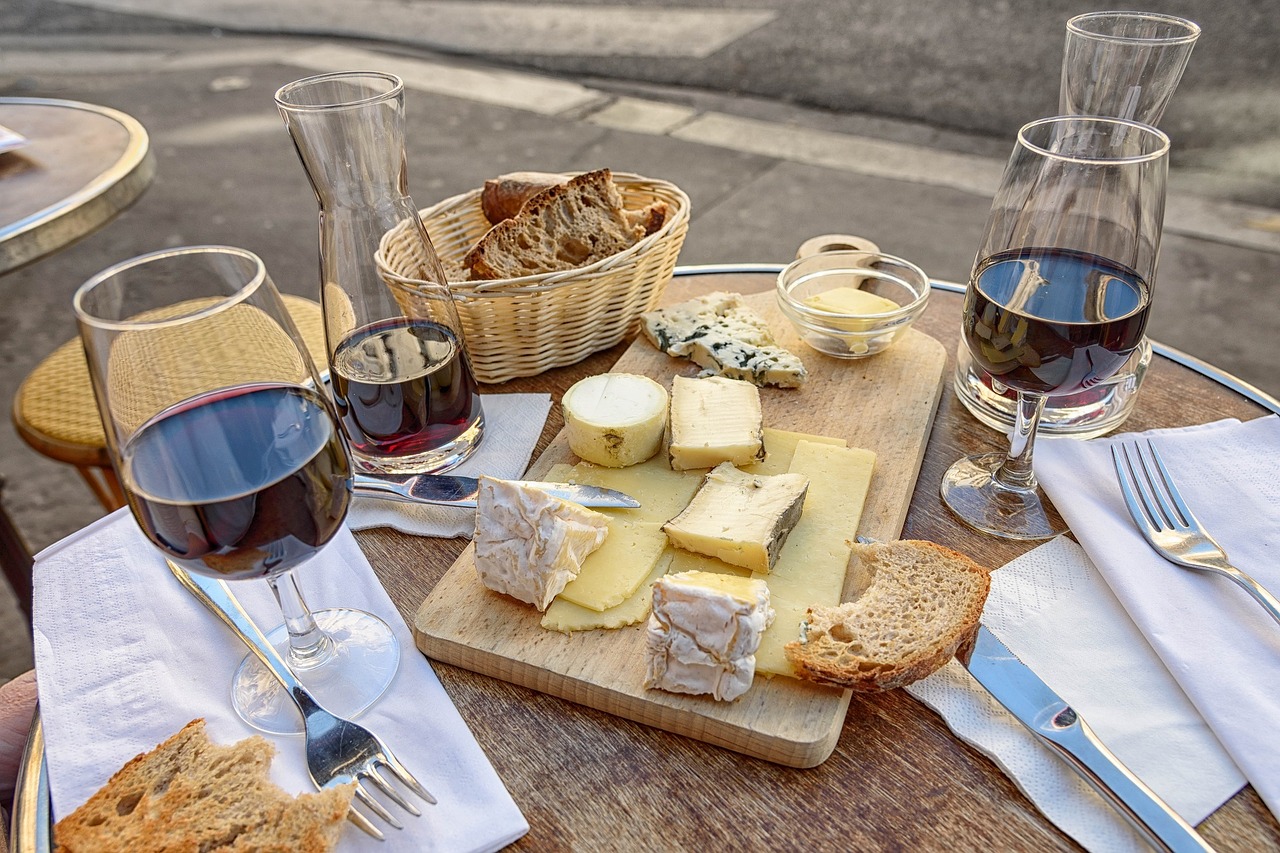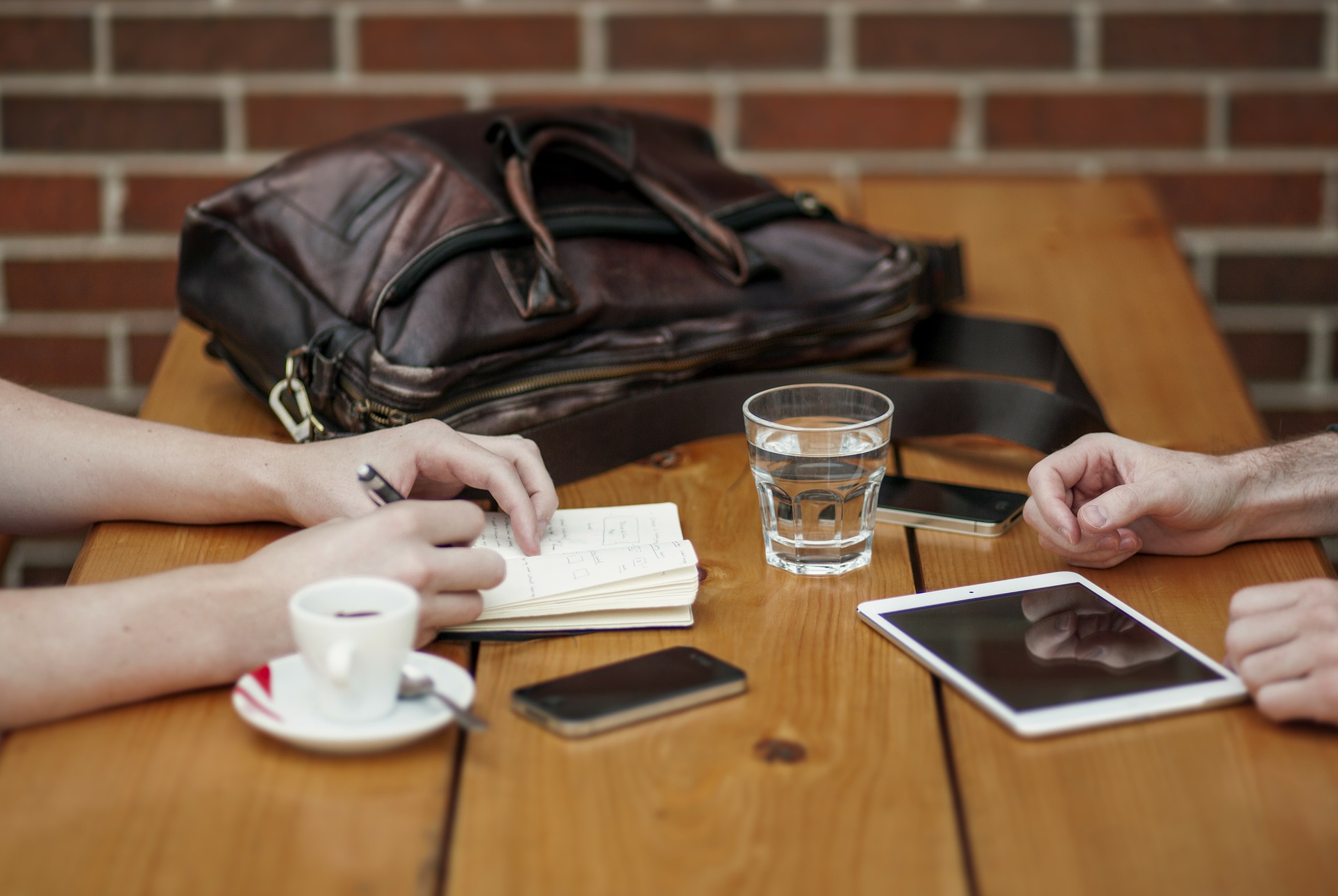In this lesson, you will make use of the structures be used to and get used to, to express routine activities and the acquisition process of new activities through communicative activities.
You must apply those structures in several contexts to understand their communicative function since they express different ideas.

NA. (2015). Pan .Taken from: https://pixabay.com/es/vino-queso-pan-caf%C3%A9-par%C3%ADs-francia-905098/
Do you find it difficult to be adapted to new activities in your life?
For example, imagine that you had to move to Paris for a year. After a while, you are used to living in such a hectic city. However, although French food is delicious, you haven’t got used to eating without tortillas yet.
Can you imagine yourself facing this situation?
Objective:
At the end of this topic, you will be able to use the structures be used to and get used to, to express habitual activities and the acquisition process of new activities through communicative activities.
In this topic, you will study two verb forms to talk about habitual activities and how to express the process of becoming accustomed to them.
Let’s check the following explanation:
If you are used to doing something, it means that this situation is not new or strange for you; you have often done or experienced it. In other words, you are accustomed to doing something.
We use get used to to talk about the process of becoming familiar with something.
As seen in the previous examples, we can use be used to/get used to in any tense, depending on the context.
Be used to and get used to are followed by a noun, pronoun or the -ing form of a verb, and can be used about the past, present or future.
Activity 1
After reading the explanation of this topic; lets put into practice what you have learnt up to now.
In the following text, you will discover how difficult it was for Santiago and his family to change his lifestyle after getting promoted in his company.
Read the text and choose the best option.

Supanat, B. (2016). Big Ben. Taken from: https://pixabay.com/es/big-ben-torre-del-reloj-2021610/
Activity 2
In the previous reading, you have learnt about some difficulties that Santiago experienced in London. Can you imagine the things that a British person has to face living in Mexico?
Taking into account that text given, write a short 70-80 word paragraph in which you use the two structures we are studying: be used to, get used to. Use the rubrics to have a self-evaluation.
Activity 3
Listen to two Mexican people who have moved abroad. How have their lives changed?
Read the instructions for each activity carefully.

NA. (2014). Kremlin. Taken from: https://pixabay.com/es/kremlin-mosc%C3%BA-rusia-capital-538791/
Listen to the first audio in which Miq talks about his life after getting a scholarship in Moscow.
To hear audio click here:
Activity 4
Listen to the second audio about a girl who moved to Dublin. Read the items carefully and click on the best option: True or False.

NA. (2015). Dublin. Taken from: https://pixabay.com/es/dubl%C3%ADn-restaurante-pub-698205/
To hear audio click here:
Activity 5
Taking as an example the listening about Miq and Ruby, think about a similar situation that has happened to someone you know or that you have heard about people living abroad.
Please write a 70-80 word short paragraph in which you use the two structures we are studying: be used to, get used to.
Remember to check the rubrics to help you self-evaluate.

Unsplashed. (2016). Traveller. [Photo]. Taken from: https://pixabay.com/en/travel
Activity 6
Is it difficult for you to get used to a new situation? Do you take new situations like a duck in the water?
It is your turn to describe your own experience about how you deal with activities a) that are not strange to you or about activities that you weren’t used to and b) how you are overcoming some difficulties.
Do you find it difficult to be adapted to new activities in your life?
For example, imagine a day without tortillas.
Can you figure out yourself facing this situation?
Choose a topic from the following situations. Write a description using: be used to / get used to in the appropriate context.
Describe an activity that perhaps not all people would do, but you do without any problem because you are familiarized with it. Explain why it is not strange or confusing to you.
Describe a short situation that has recently changed in your life, something that maybe you don’t like, but think that you will get used to in the future. Include how you will overcome the difficulties.
Extension: 100 - 120 words, for more details, check the rubrics to evaluate yourself. Read the following example.
Activity 7


Choose two questions from each list and answer them (four in total). If you answer Yes or No, please give your reasons. Listen to the example. Record your voice and use the rubrics to evaluate yourself.
|
|
To hear the audio click here:
Check first the rubric to use it as a self-evaluation.
Exercise 1
You have studied the content for this topic. It is time to have a self-evaluation to check your progress.
Exercise 2